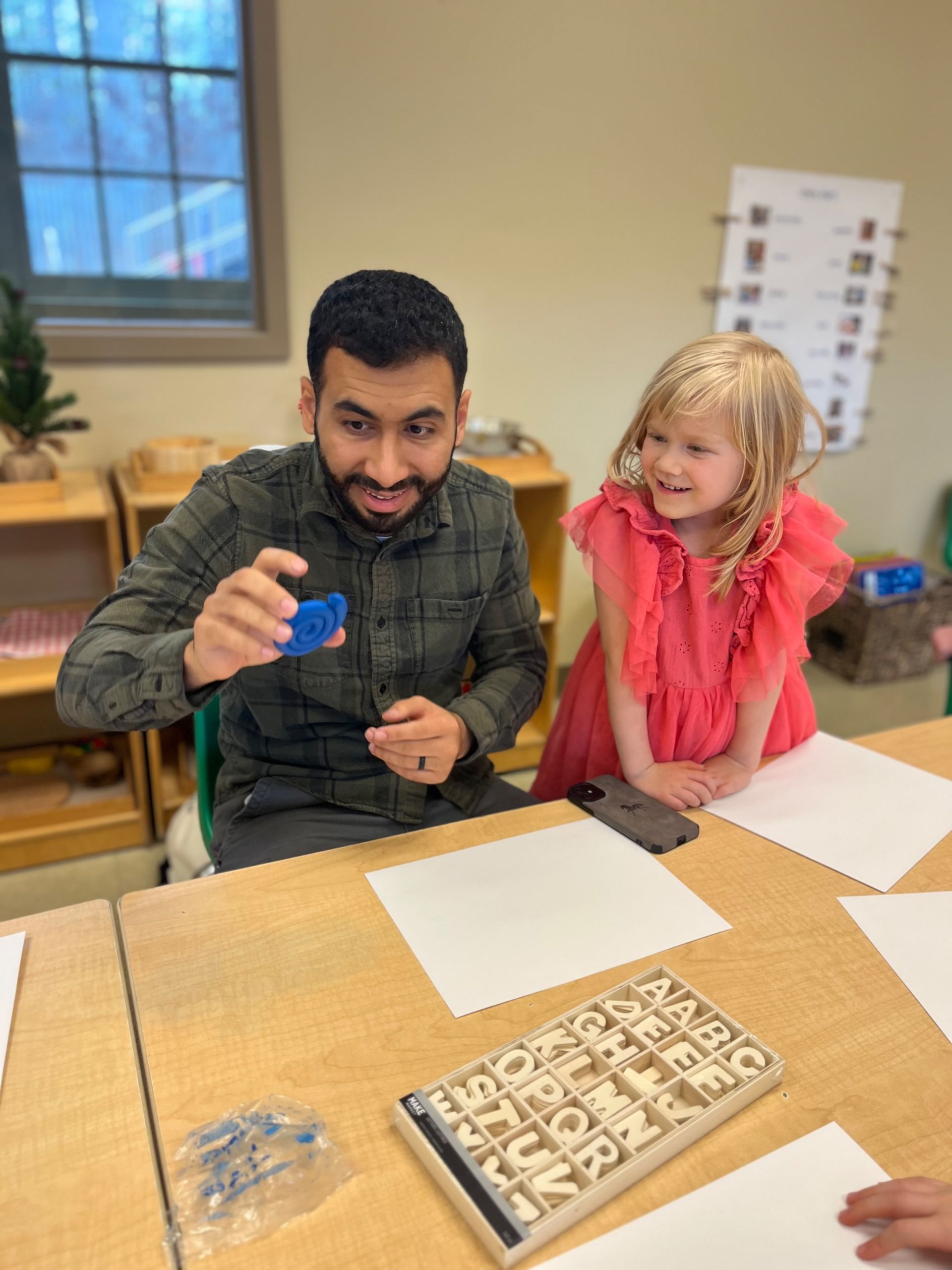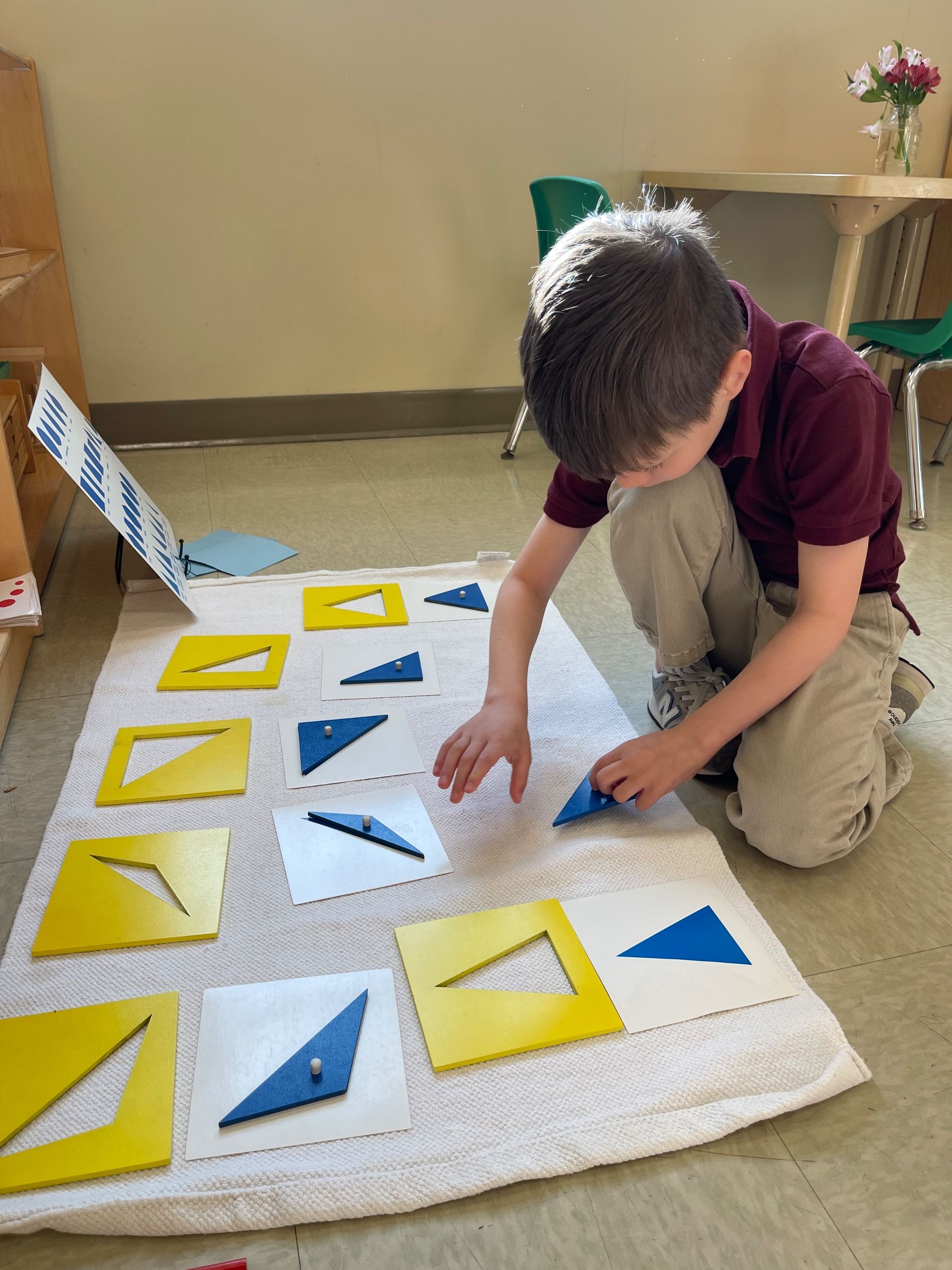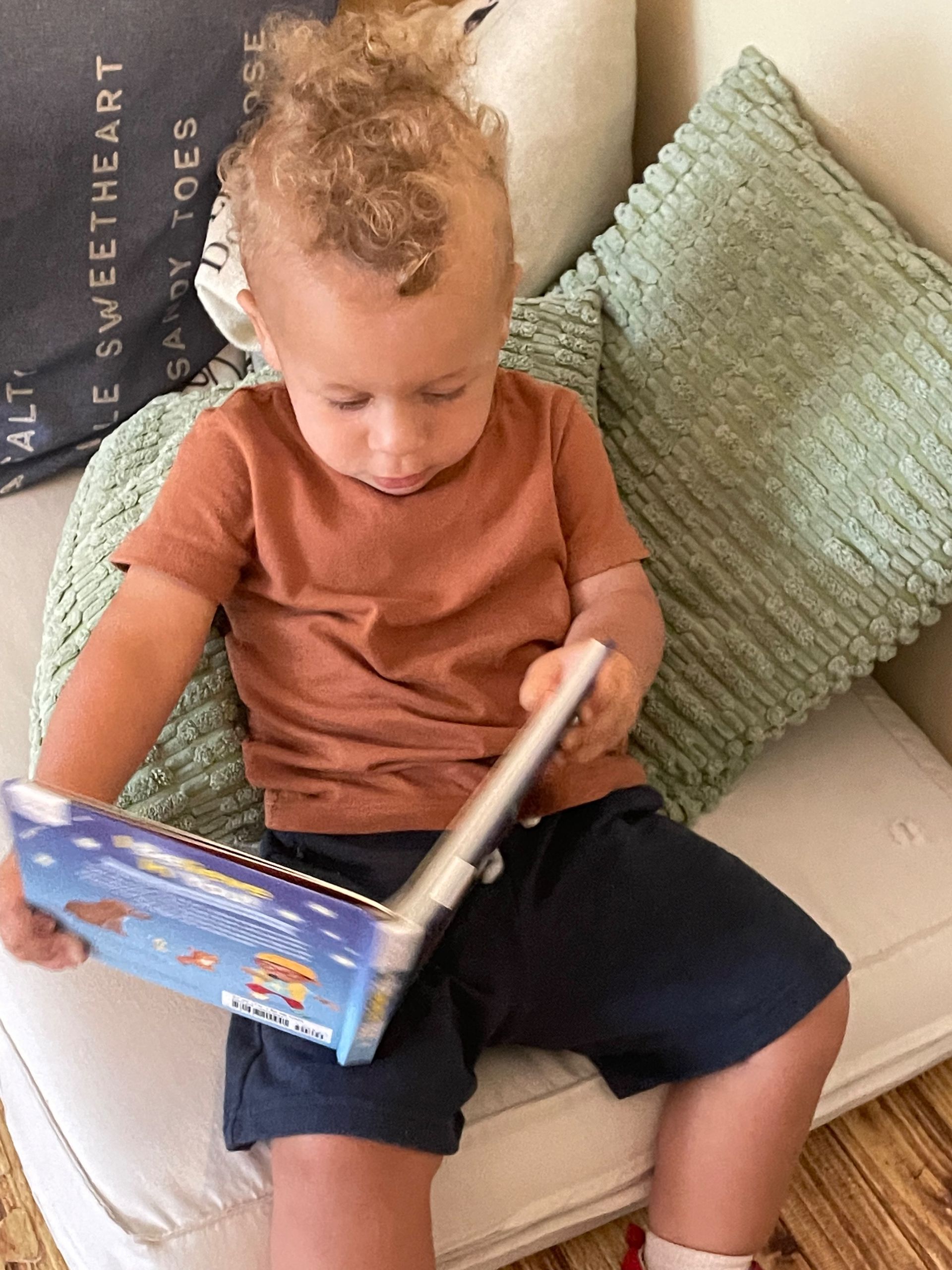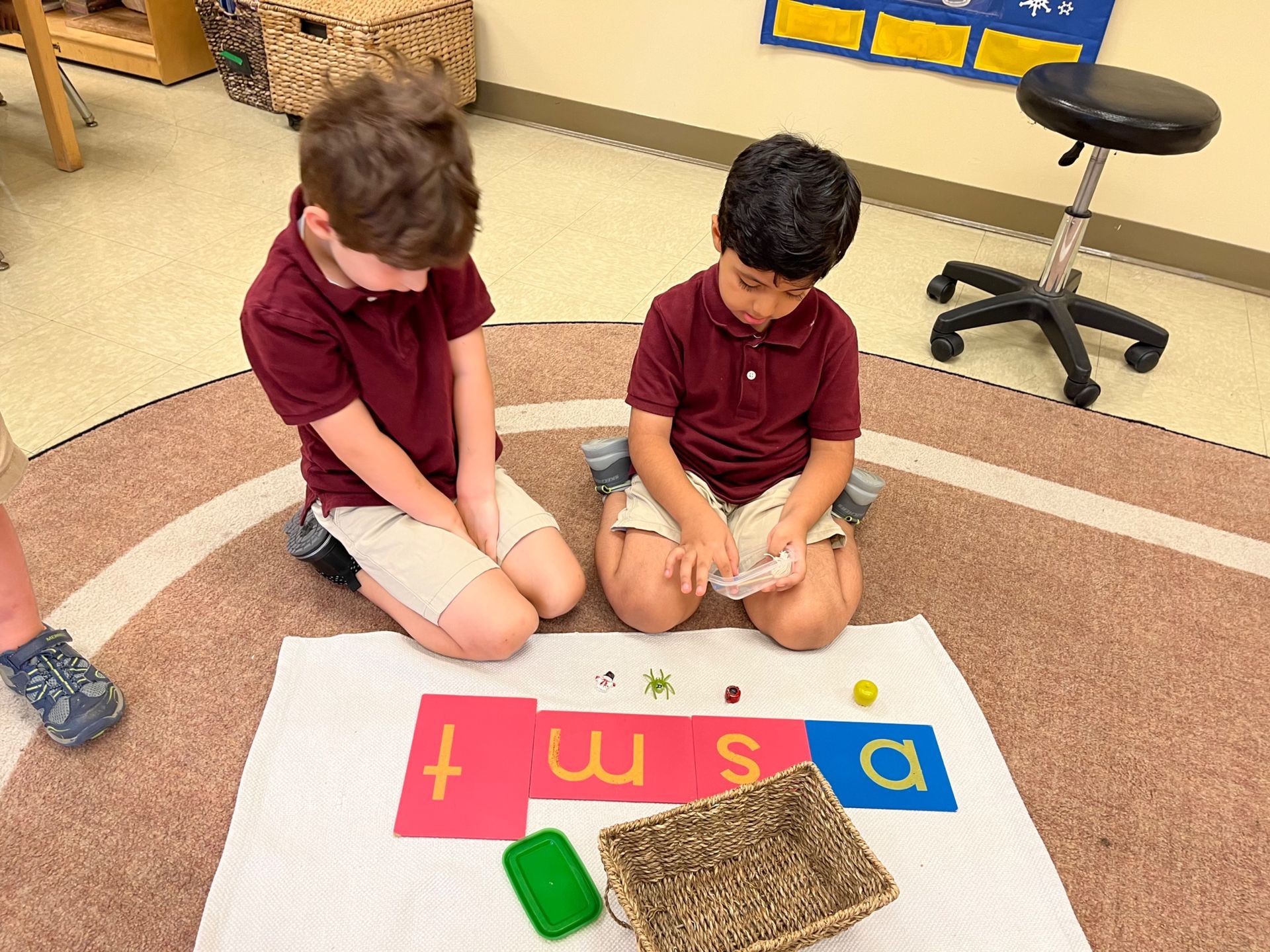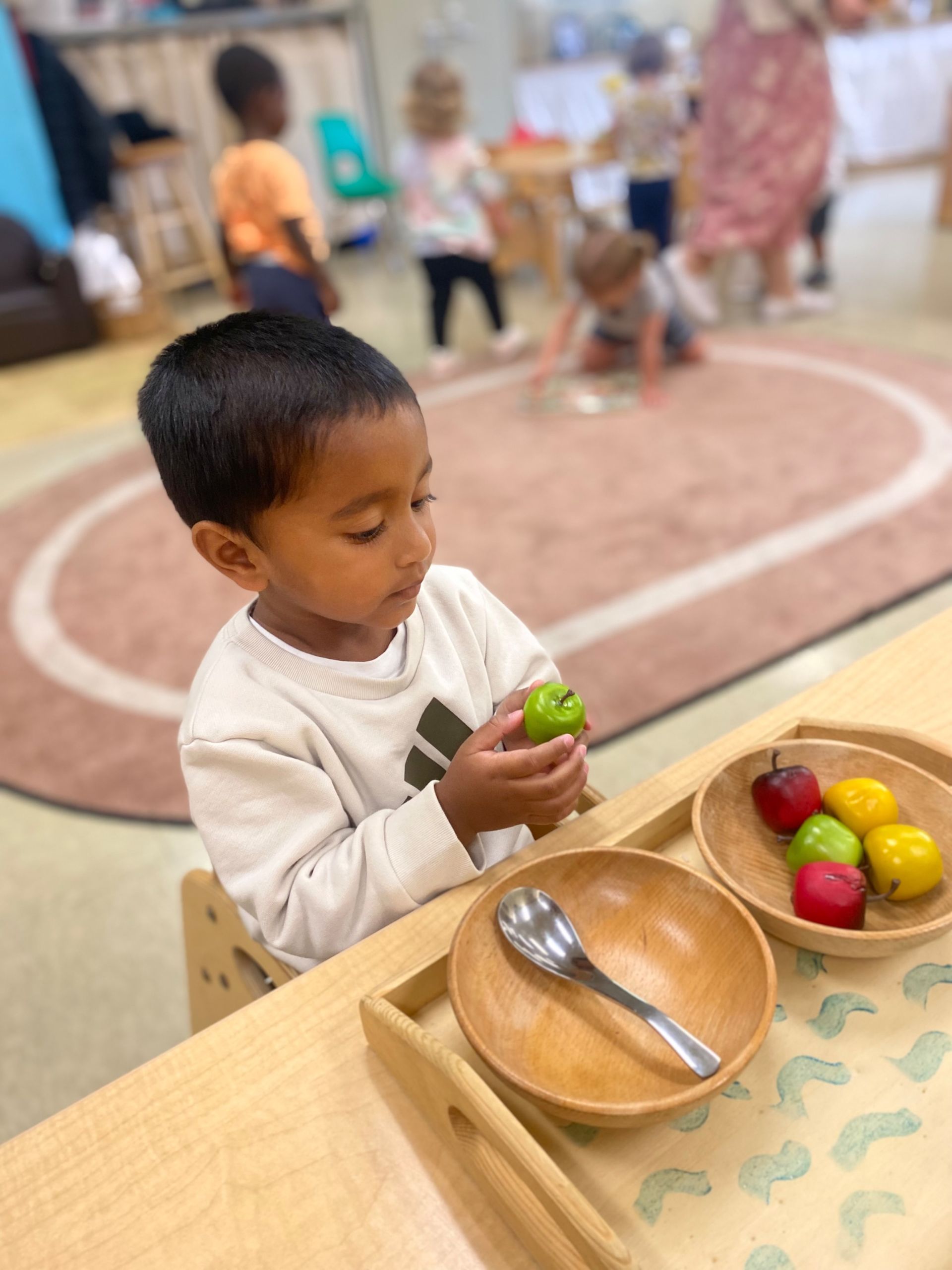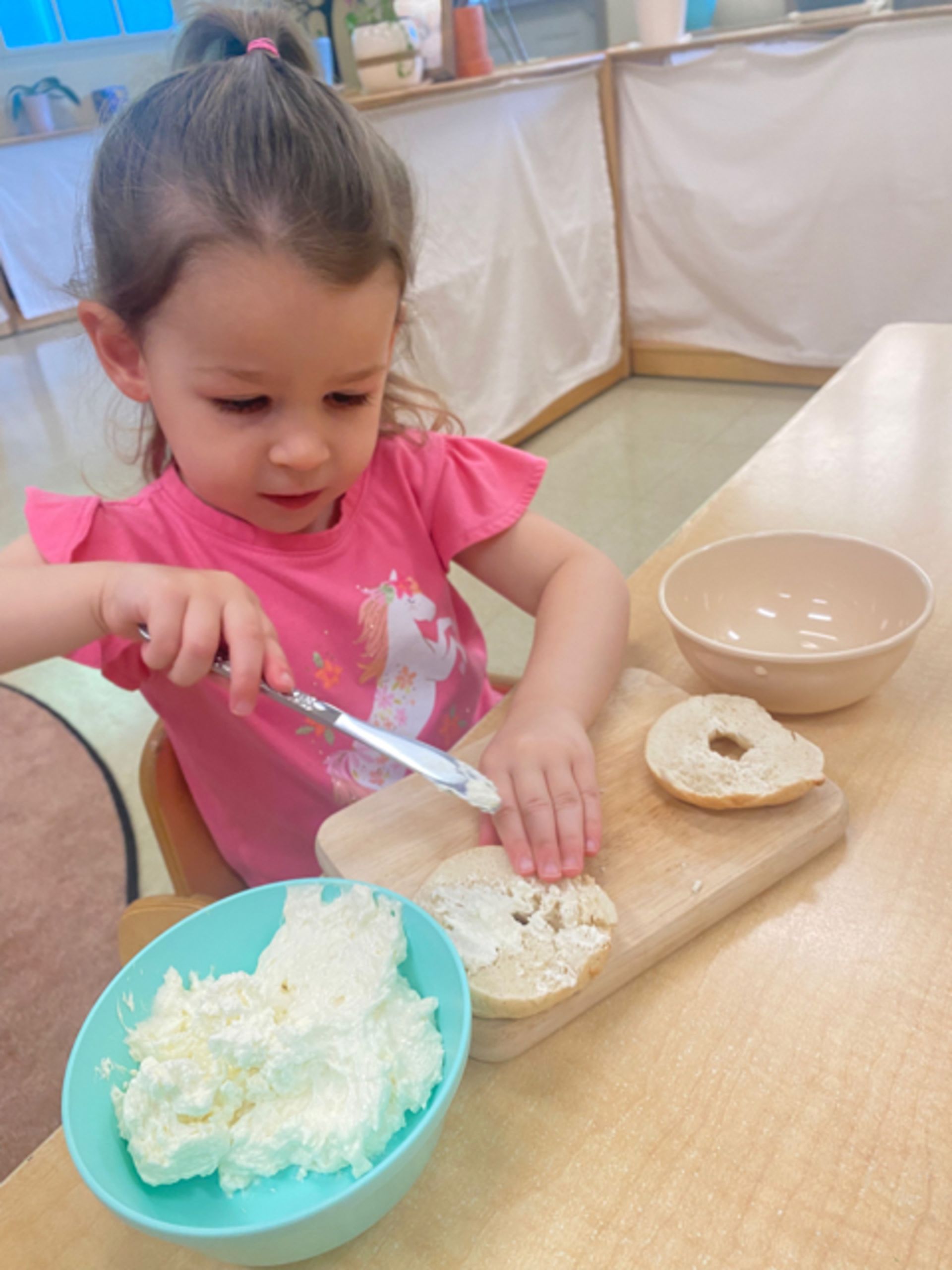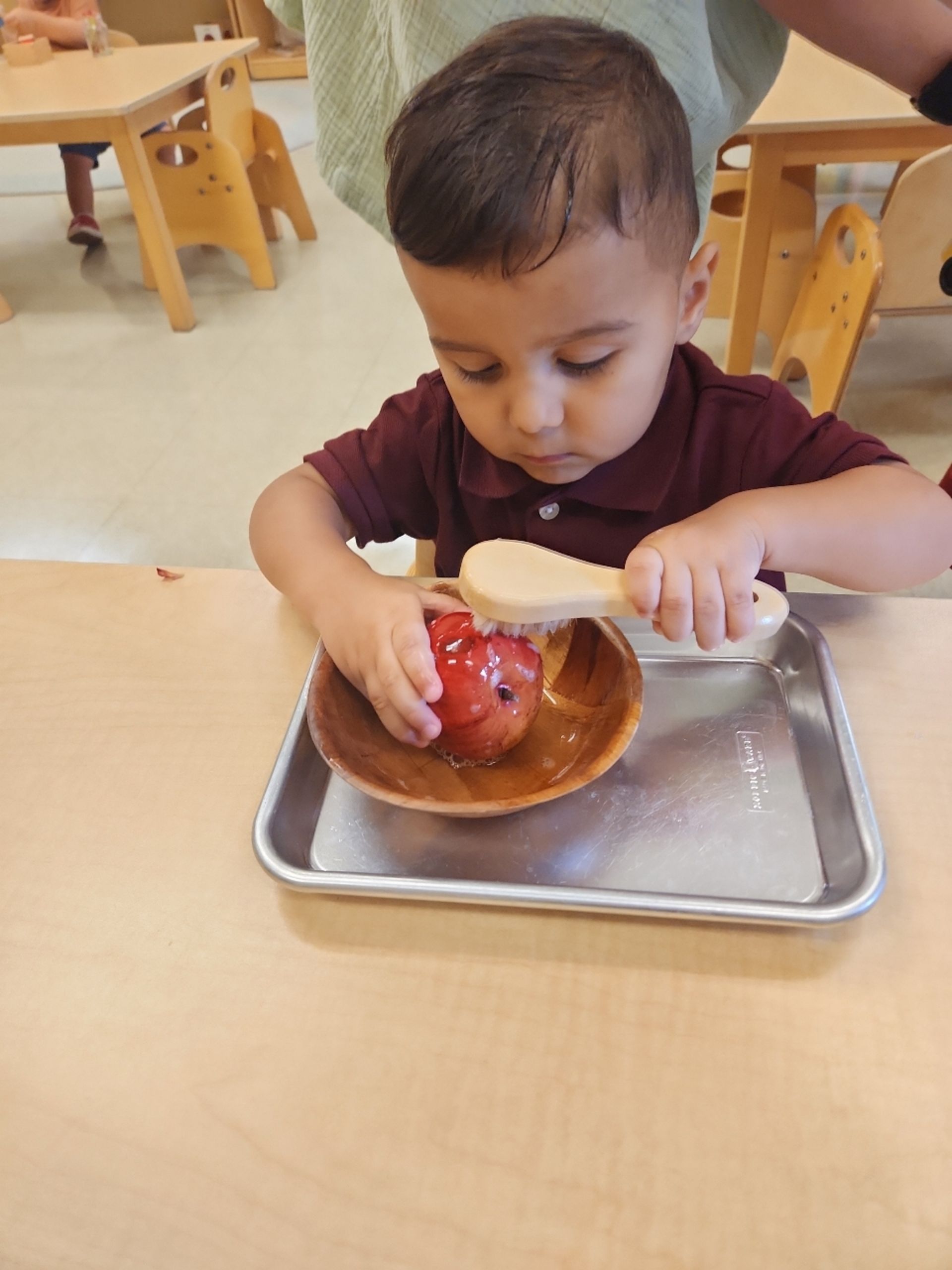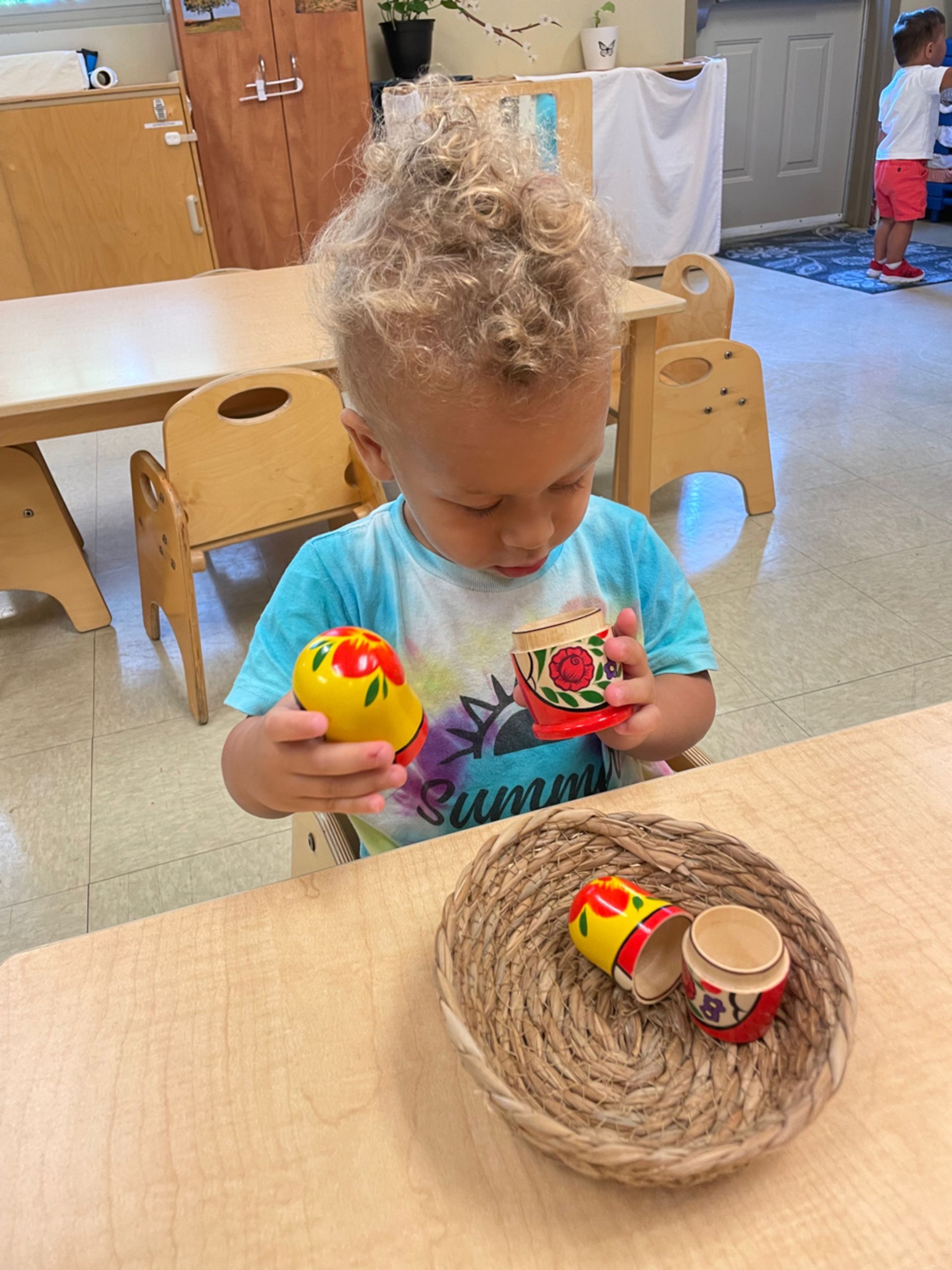Our School
Early and elementary childhood development has many facets that are all critical to shaping and giving children the tools needed to forge their own successes through life. Bristow Montessori aims to inspire your children to love learning, enjoy meaningful social interaction, respect themselves and their surroundings and most importantly, to be responsible and conscientious members of the global fabric. It will take all of us, the entire BMS community, to help make this happen. This is Montessori at BMS.
Our Mission
Curiosity. Care. Confidence.
Bristow Montessori School
focuses its approach to nurturing children on these three guiding principles. It is our mission to instill a sense of confidence, a spirit of independence and a genuine curiosity for learning all within a nurturing and caring environment. Further, it is our mission to inspire young people to become well adjusted and well-rounded citizens of the world.
Our Philosophy
We implement the traditional Montessori multi-age classroom concept as the optimum blend for academic, social and emotional learning. We believe that the dynamic classroom requires a sufficient gathering of children to operate effectively. We value cooperation and collaboration over competition and believe that each child’s work and behavior should be evaluated on his or her inherent capacity rather than by comparison. To introduce young children to this learning style, we offer an Infant (6 week-16 months) program, Toddler (16 months-24 months) program, a Pre-primary (2-3 year olds) program, and Primary/Kindergarten (3-6 year olds as a mixed age group).
We believe that Maria Montessori’s vision builds a strong foundation for children in formative years. The classrooms provide a prepared environment where children are free to respond to their natural drive to work and learn independently.
As a complement, the Montessori learning philosophy also encourages learning from one another and working collectively to foster communication and social skills. The children’s inherent love of learning is encouraged by giving them opportunities to engage in spontaneous, meaningful activities under the guidance of a trained adult.
Through their work, the children develop concentration, motivation, persistence, and discipline. Within this framework of order, children progress at their own pace and rhythm according to their individual capabilities during the crucial years of development.
The beauty of Montessori is the balance of allowing free will within the context of a structured setting.
Bristow Montessori School
believes in an interdisciplinary teaching methodology that promotes academic, athletic, artistic, and crucial social maturation in formative years.
Our Learning Objectives
Skills
- Oral Communication
- Thinking
- Reasoning
- Problem Solving
- Decision Making
- Written Communication
- Personal Management
Knowledge & Understanding
- Fine Arts
- Social Systems
- Language & Culture
- Science & Technology
- Mathematics
- Health & Fitness
- Geography & Culture
Self
- Self Respect
- Respect for Others
- Initiative
- Curiosity
- Self-confidence
- Aesthetic Appreciation
- Social Responsibility
Our Affiliations
Bristow Montessori School’s curriculum follows principles endorsed by
AMS (American Montessori Society), and actively recruits trained teachers and staff with credentials recognized by AMS and
AMI (Association Montessori Internationale). As an American Montessori Society (AMS) Member, Bristow Montessori School is proud to offer a genuine and traditional Montessori education
Self Awareness & Independence
We work with your children from infancy through their elementary years so that each student can strongly develop both self awareness and assurance, as well as begin to understand capabilities as an individual and realize potential. We, as parents, take much of this development for granted, as simple milestones of childhood. However, as an example, sipping from an open cup as a young toddler is a big accomplishment, as is having the awareness to know when it is time to go to the restroom, and what to do when you get there. For a Kindergartner, illustrations of independence may include learning to tie shoe laces or choosing one’s work in the classroom without having to be directed by the teacher. Providing an opportunity to develop such self awareness and dependence upon oneself is the foundation for becoming an intrinsically self-motivated individual through life.
Curiosity
A Montessori teacher is a highly trained observer of young children. In the classroom it is the teacher’s objective to really get to know each child – figuring out what truly makes each child “tick”. The teacher then follows the student’s lead by allowing students to explore the classroom and gravitate to work that interests them. This method is critical to the success of the student – it makes learning fun and children begin to fully embrace enjoyable learning experiences. The teacher uses a child’s intrinsic curiosity and desire to learn as a spring-board into other learning areas within the classroom. The time your children spend with their teacher allows teachers to observe personal habits and interests and is invaluable for creating lessons. Reach out to your child’s teacher and help us understand your children. Education is a relationship. A parent’s perspective is critical to shaping the educational environment, and so I encourage all of you to reach out to your teachers and provide some insight into what makes your child “tick”.
Guidance
In the spirit of “whole child” development, a heavy emphasis is placed on the development of social graces. It is very important that our students develop the ability to respect and care for themselves, for those around them and for the world at large. By helping young children explore and develop interpersonal skills, proper and effective communication strategies and the ability to work with those of varying opinions and abilities, they will be better prepared for life. Guiding them in this manner helps students understand the importance of empathy and cooperation, and builds a platform for children to make good choices in behavior and actions for themselves and toward others. With a focus on manners, patience, self-control and regulation – an independent, thoughtful child emerges with decision making skills that are useful in everyday life.
Care of Environment
Montessorians feel that a tidy, hygienic and organized environment will lend itself to higher levels of achievement. To this end, a Montessori classroom is specifically designed to be attractive, organized and full of natural light – and the maintenance of the classroom is the responsibility of both the community and the individual. As we are working to develop a strong sense of responsibility in each child, we hold our students accountable for the upkeep of their environment. Each student feels a sense of ownership in upholding his/her share to keep the classroom orderly. A warm, inviting and homelike setting that is prepared and pleasing enables students to learn spontaneously.
Following the Child
We say this so often, but it is important to understand why this aspect of child development is essential. We cannot stress enough that each of your children is unique and incredible to us. We believe that by following each child’s natural curiosity and allowing them to learn at their own pace, we are helping foster their own innate abilities to learn and do great things. In this spirit, we will never say that all of our children will learn to do anything by a certain age or developmental window. Some students may be interested in learning to read at three and others at five or beyond. While we try to encourage interest through inspiration and exposure to related “works”, we will not push children for the purpose of checking off a task on a list. A meaningful understanding is always the goal over drills and end results. In fact, studies show that if a child is pushed academically in a direction or to a depth that makes him/her feel uncomfortable, that the student can (and most likely will) fall out of love with learning.
Confidence
It is our fundamental mission to ensure that each student leaves BMS with confidence – the confidence to recognize and realize their individual potential. We aspire to send our students onto the next phase of life and education with a strong sense of self and the ability to effectively question, challenge, problem solve and cultivate independent thought.
Learning & Academics
Learning in the Montessori environment is focused primarily on individual and small group lessons, as well as community building activities that promote a collaborative and cooperative spirit amongst the students. The materials in the classroom are referred to as “works”. This is because we want our students to have respect for their day and the time spent at school, and as such, children go home with a sense of responsibility and accomplishment. Children are using different works at any given time during the school day, whether engaging in Practical Life, Sensorial, Language and Writing, Geography, Mathematics or Science. Interestingly – learning in the Montessori environment is not solely limited to new lessons. In fact, it involves the repetition of works that have already been introduced as well as extrapolation of those same works.
Many of the works are self-correcting, which is purposeful as it allows students to make errors, encouraging them to make adjustments and improvements the next time. The learning experience also incorporates working with other students of varying ages – such as an older child sitting with a younger classmate to demonstrate mastery of a work, thus building leadership qualities in young children that are critical later in life. We have all witnessed the miracle of a child learning by “doing” – and by creating an environment that is tactile and visual, children are encouraged to learn through touch and experience.
This environment is conducive to enable the full cycle of learning. It is also important to understand that the nature of the Montessori curriculum is to spiral upward, using each skill and piece of knowledge as it is mastered, serving as a foundation to build to higher levels of achievement and understanding. In this way, your children do not simply skim the surface of general concepts or breeze through units of study. They are active, focused participants, willingly engaged in learning in a highly concentrated fashion until they have a thorough understanding that will carry them onward and upward to the next phase of learning, trending from concrete concepts to more abstract ones.
Parent Reviews
"BMS has been wonderful. BMS isn't just a school but they've also become like family. The staff genuinely cares about the children and we couldn't be happier with their services."
— Parent of 4-year-old
"My daughter started at BMS when she was 4 months old. With every room my daughter transitions to the teachers are kind and truly care for her well-being. I would recommend this school to any parent without hesitation."
— Parent of 5-year-old

